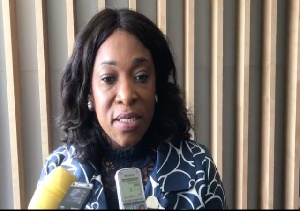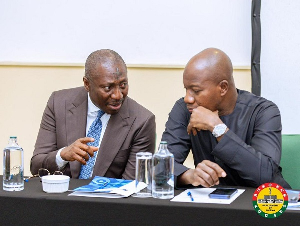Ghana has deposited its instruments for the ratification of the agreement for the establishment of the African Continental Free Trade Area.
So far seven countries have deposited their instruments leaving 15 other African countries who are yet to do so.
Speaking at an interactive session with the Regional Deans in Accra, Ghana’s Foreign Affairs Minister, Shirley Ayorkor Botchwey, said it is the wish of Ghana to see the remaining member states ratify and deposit their instruments to enable the agreement to come into force.
Speaking at the 58th Annual General Conference of the Nigerian Bar Association in Abuja, Nigeria, on Monday, 27th August 2018, President Nana Akufo-Addo said a major deficit of Africa’s economic development has been the low level of intra-Africa trade that has characterised the performance of African economies up till now.
According to statistics, in the year 2000, intra-regional trade accounted for 10 per cent of Africa’s total trade and increased marginally to 11 per cent in 2015. Meanwhile, trading amongst members of the European Union amounted to 70 per cent in 2015.
“I believe it is extremely important for the welfare of the 1.2 billion people of the continent that we, the leaders, demonstrate a strong political will to operationalise the African Common Market. It is my fervent hope that Africa’s largest economy, Nigeria, will very soon assent to this Agreement,” Nana Akufo-Addo said.
With West Africa’s current population of 350 million set to reach a population of 500 million in 20 years, and likewise Africa’s set to increase from 1.2 million to 2 billion people in 20 years, the president noted that “genuine regional and continental markets in Africa should be in the mutual interests of Ghana and Nigeria.” These markets, the president stressed, “will present immense opportunities to bring prosperity to our peoples with hard work, creativity, and enterprise.”
The African Continental Free Trade Agreement is meant to create a single market for goods and services facilitated by the free movement of persons in order to expand intra-African trade and enhance competitiveness at the industry and enterprise levels.
Business News of Sunday, 25 November 2018
Source: classfmonline.com













